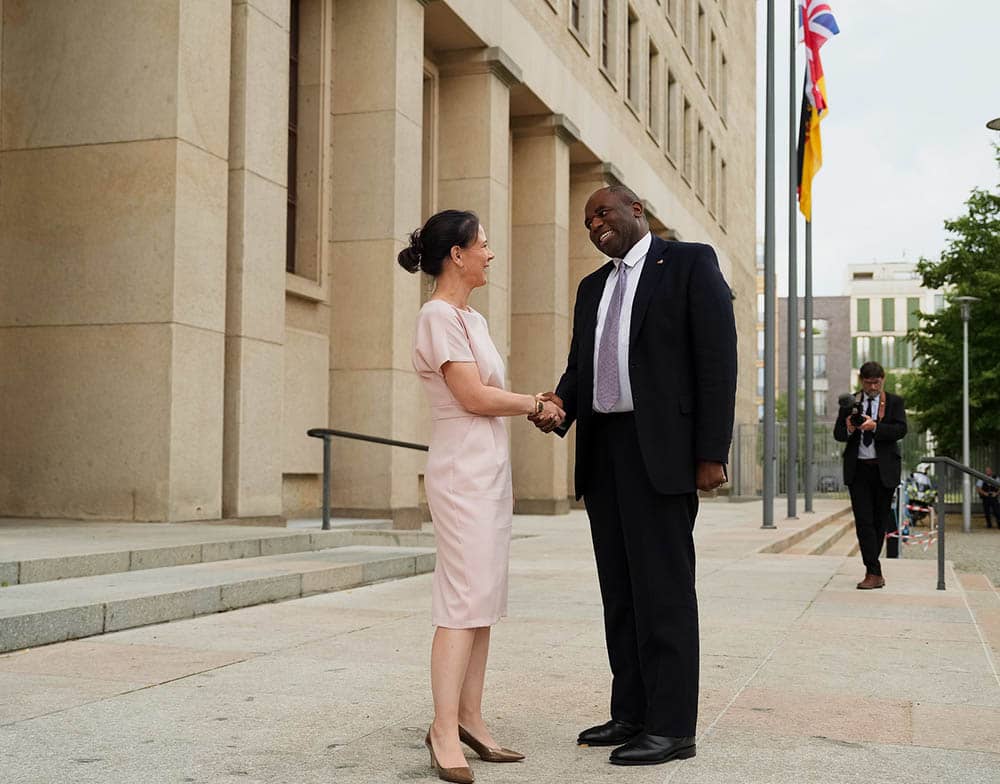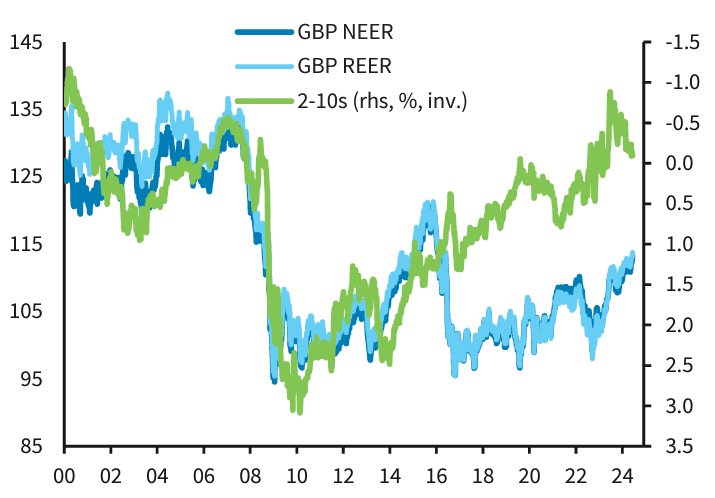
Berlin, Germany. Foreign Secretary David Lammy meets with Federal Minister for Foreign Affairs of Germany Annalena Baerbock. Picture by Ben Dance / FCDO
Work has already begun to improve the UK's Brexit deal with the EU as the new Labour government pursues closer ties with the EU. Analysts at Barclays say this can help shrink the Pound's 'Brexit premium'.
Prime Minister Keir Starmer has ruled out any return to the single market or customs union but has said work has already begun to improve the UK’s Brexit deal with the EU as Labour pursues closer ties with the bloc.
Foreign Secretary David Lammy has already travelled to Europe and is working with Germany to see how Britain "can move closer to the EU," according to Germany's foreign ministry.
The Chancellor, Rachel Reeves, has said that Labour would seek to strike deals in the chemical and veterinary sectors.
Anticipating improvements in the relationship, analysts at Barclays raised their forecasts for the Pound to Euro exchange rate ahead of last Thursday's vote.
Brexit was the dominant factor when considering the Pound from 2016 until 2020 when the UK finally exited the single market.
Although the topic is discussed infrequently in financial circles, Barclays' research shows that Brexit still matters and is evident in a noticeable valuation gap carried by the Pound.
Above: "The pound's Brexit premium" - Barclays.
"The renegotiation of the TCA in 2026 and Labour’s declared openness to avenues such as a veterinary agreement or the mutual recognition of professional qualifications suggest scope towards a closer relationship and a further modest – but non-negligible – Brexit premium unwind," says Lefteris Farmakis, an analyst at Barclays.
The TCA - which is the trade agreement made between the EU and the UK - is due for a review in 2026. The Centre for European Reform says, "a Labour government will want to reshape relations with the EU. The 2026 review of the trade deal offers only limited scope for change – but that should not constrain Labour’s ambitions."
Like other organisations, the Centre for European Reform says the costs of Brexit have been significant, and improving the current trading arrangements with the UK’s biggest market will be crucial for any government that is serious about reviving economic growth.
The "significance" of the hit to the UK economy is reflected by the Brexit premium embedded into a weaker Pound, as per the above chart. In short, Pound Sterling would be far stronger were it not for Brexit.
Barclays thinks the gap can close as the Pound rises.
"Consistent with the above, our new forecasts envisage sizeable gains for the pound versus the euro, with EURGBP reaching 0.80 in the coming quarters," says Farmakis. "With growth momentum improving and carry support likely to remain in place throughout the cutting cycle, we now envisage larger (and more front-loaded) pound outperformance."
EUR/GBP at 0.80 equates to a GBP/EUR forecast of 1.25 (for the first quarter of 2025).
The Pound to Dollar exchange rate is expected to rise to 1.33.


